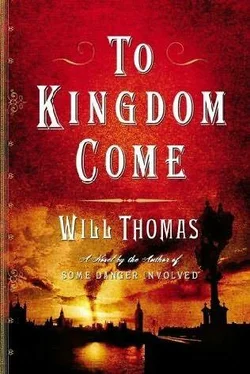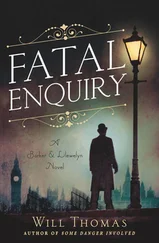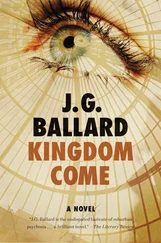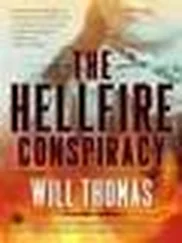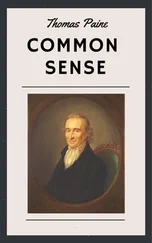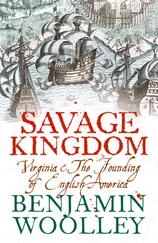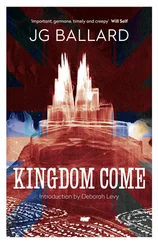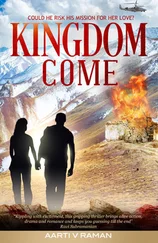Will Thomas - To Kingdom Come
Здесь есть возможность читать онлайн «Will Thomas - To Kingdom Come» весь текст электронной книги совершенно бесплатно (целиком полную версию без сокращений). В некоторых случаях можно слушать аудио, скачать через торрент в формате fb2 и присутствует краткое содержание. Жанр: Исторический детектив, на английском языке. Описание произведения, (предисловие) а так же отзывы посетителей доступны на портале библиотеки ЛибКат.
- Название:To Kingdom Come
- Автор:
- Жанр:
- Год:неизвестен
- ISBN:нет данных
- Рейтинг книги:4 / 5. Голосов: 1
-
Избранное:Добавить в избранное
- Отзывы:
-
Ваша оценка:
- 80
- 1
- 2
- 3
- 4
- 5
To Kingdom Come: краткое содержание, описание и аннотация
Предлагаем к чтению аннотацию, описание, краткое содержание или предисловие (зависит от того, что написал сам автор книги «To Kingdom Come»). Если вы не нашли необходимую информацию о книге — напишите в комментариях, мы постараемся отыскать её.
To Kingdom Come — читать онлайн бесплатно полную книгу (весь текст) целиком
Ниже представлен текст книги, разбитый по страницам. Система сохранения места последней прочитанной страницы, позволяет с удобством читать онлайн бесплатно книгу «To Kingdom Come», без необходимости каждый раз заново искать на чём Вы остановились. Поставьте закладку, и сможете в любой момент перейти на страницу, на которой закончили чтение.
Интервал:
Закладка:
We arrived at Euston Station in plenty of time, and boarded our train. I’d seen the northern trains before, with their pretty milk-and-claret paint scheme, but I would have preferred better circumstances for an excursion. I procured a copy of The Times at one of the news vendors, and spent the journey studying it in the smoking car, where Barker sat with his pipe and cogitated. The window was half closed. It rained most of the journey and no one dared disturb the Welshman reading his newspaper or the German poisoning the car with his heavy pipe fumes, so we had the carriage all to ourselves. When we arrived in Liverpool, my suit and my newspaper were crumpled and damp and smelled of tobacco smoke.
Barker reached into the cavernous pockets of his coat and produced a packet of papers, which he handed to me.
“I had these made for you,” he said. “They are identification papers in the name of Thomas Penrith.”
“Are they forgeries?” I asked as I glanced through the passports, which looked as authentic as any papers I had ever seen. Wondering where he could have procured such things, I thrust them into my pocket. Somewhere he had a fellow at his beck and call who was a maker of false papers. It was an odd business we were in. No shipping merchant or exchange clerk would require knowing such a person.
“Either that, lad, or I found another fellow named Penrith who is an explosives expert,” he said. It was the closest he had come to jesting, and I took it as a good sign. He didn’t appear to be worrying over the case. If anything, he was looking forward to it.
In the ticket office in the Lime Street Station, Barker asked the clerk-a portly, friendly-looking fellow in a blue coat and peaked cap-if he might use the telephone. And might the clerk recommend a good hotel in the area?
“Midland Hotel, sir, right around the corner,” the clerk said, before leading us back to a cluttered desk where the telephone stood, surrounded by timetables, papers, and tin teacups.
“If he is like Parnell, he’ll only want the best,” Barker growled. He asked the operator for the hotel, and was connected through.
“Good day,” he said into the mouthpiece. “I have an appointment with Colonel Dunleavy today, and I wanted to make certain that he is in…. The dining room, you say? No, you need not tell him. Thank you.”
He replaced the receiver and turned to me. “Luck is with us, lad. He is indeed staying at the Midland Hotel. I must send a telegram, but afterward, let us go and see if we, too, can get a room.”
My first view of Liverpool was grim and gray. A city does not look its best in the rain. As we stepped out of the station and into the road, the aspect of Lime Street reminded me of a watercolor painting, all washes and colors blending together. There were puddles in the gutter, and rain dripping steadily from the eaves.
The Midland, while not as intimidating as Claridge’s, was certainly imposing. It rose five stories, with turrets offering a jagged skyline, but down on the street, it had window panels like a cozy tearoom to draw people in. Inside, the hotel was opulent. It was also exclusive. The clerk was not going to let just any pair of disheveled, slightly disreputable-looking persons such as ourselves into the establishment.
“I’m afraid we’re full up, sir,” the clerk said dismissively.
Barker was not to be dissuaded. He cleared his throat loudly and covertly passed a banknote across the desk to the clerk. Not a pound nor a fiver, but a full ten pounds, the price of a room for a week.
“Your name, sir?” the clerk asked, suddenly solicitous. His very demeanor had changed. One would have thought Barker a long-lost uncle.
“Johannes van Rhyn.”
“You are from …?”
“London. Well, Berlin, originally, but that was years ago. I lived in Budapest and then in St. Petersburg for a year, and …”
“London will be fine, sir. And your occupation?”
“I am an industrialist,” Barker said, puffing out his chest.
“Thank you, sir. You are most fortunate. A suite of rooms has just been vacated. We can put you in Number 47.”
“ Danke. Is that rascal Dunleavy about? I have an appointment with him this afternoon.”
“The colonel is in the dining room, sir.”
“Excellent. Have our bags sent up to our rooms. We shall have a meal after our little journey.”
We made our way into the dining room, but Barker made no attempt to spy out Alfred Dunleavy. We were shown to a table, and he made something of an act of being cantankerous, refusing the first one. Once seated, he ordered tea and roast beef and said loudly, “Well, Thomas, we are here.”
“Yes, sir,” I said, trying not to look around. I wondered what Barker was about. Casually, I glanced around the room. I couldn’t see any terrorists, but, then, they don’t exactly wear uniforms or have insignias on their lapels.
“Mr. van Rhyn!” a voice suddenly cried. “Telegram for Mr. van Rhyn!”
“Over here, my good fellow!” Barker called out to the young porter, whom he tipped a shilling. He opened the message and perused it, with the note close to his eyes. From where I sat, I could see it was blank. He had sent it himself from the train station. What was he up to? I wondered.
Our meal arrived, and without a word we ate. It was classic hotel dining room fare, the meat cut from a large joint on a serving table in the room, but I had no interest in it as I had eaten so well at breakfast. Barker had that look about him of a man waiting for a fish to rise to the bait. It did not take long.
“Pardon me, gentlemen,” a polished American voice drawled behind me. I looked up to see a man in his mid-fifties with white hair, worn rather long, and a short beard. He affected a breezy manner, but his eyes glowed like banked coals. “I hope you will forgive my rude interruption of your meal, but would I be addressing Mr. Johannes van Rhyn?”
“Perhaps,” Barker responded in his assumed German accent. “To whom do I have the pleasure of speaking?”
“My name is Colonel Alfred Dunleavy, and I am a representative of the Irish Republican Brotherhood,” he said, putting out a hand.
“I am indeed Johannes van Rhyn,” Barker said, taking the offered hand.
“I am very gratified to hear it. Mr. van Rhyn, we had heard rumors that you’d been snatched away by the British government and taken to a secluded place at Her Majesty’s expense.”
Barker nodded. “Ja. That swine Parnell informed on me, I think, because I would not agree to his terms. My solicitor was able to gain me a temporary release, and I have taken the opportunity to decamp. I am traveling to Dublin, then making my way to America. I have made too many enemies in Europe. It is time to see the New World, don’t you think, Mr. Penrith? Excuse me, Herr Dunleavy, I would like to present Thomas Penrith, my assistant.”
“A pleasure to meet you, sir,” the American said, briefly shaking my hand. “I assure you, gentlemen, that I concur with your opinion of Mr. Parnell. But before you slip through our fingers, allow me the opportunity of delaying your departure for just a while longer. I’d like to present a proposal to you.”
“I might be willing to entertain an offer. What do you have in mind?”
“May I arrange an appointment with you this evening in your rooms? I’d like to speak with my associates. Would ten o’clock be suitable?”
“Certainly, sir. We would be delighted.”
“It was most fortuitous that you should choose this hotel to stay in.”
“I heard it was the best,” Barker said, shrugging. “And one has but one life, after all.”
“My sentiments exactly, gentlemen. We will speak later. I’ll leave you to your meal. Until then.” He bowed, and left the dining room.
Читать дальшеИнтервал:
Закладка:
Похожие книги на «To Kingdom Come»
Представляем Вашему вниманию похожие книги на «To Kingdom Come» списком для выбора. Мы отобрали схожую по названию и смыслу литературу в надежде предоставить читателям больше вариантов отыскать новые, интересные, ещё непрочитанные произведения.
Обсуждение, отзывы о книге «To Kingdom Come» и просто собственные мнения читателей. Оставьте ваши комментарии, напишите, что Вы думаете о произведении, его смысле или главных героях. Укажите что конкретно понравилось, а что нет, и почему Вы так считаете.
